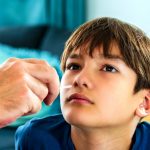Public health officials offered a lot of advice to prevent the spread of COVID-19 early in the pandemic, but some parents apparently tuned it out.
About 1 in 4 misled others about their child’s COVID status, vaccination and related details, a nationwide survey found.
“Like everyone else, parents worried about getting sick with COVID-19 or about losing their job, but parents also had to manage juggling job responsibilities while their children were home in quarantine,” said study co-author Andrea Gurmankin Levy, a professor of social sciences at Middlesex Community College in Middletown, Conn. “And it’s quite possible that some parents misrepresented their child’s COVID-19 status or didn’t adhere to testing or quarantine rules in an attempt to ease some of this burden.”
The findings — published March 6 in JAMA Network Open — follow up on earlier research by the same team that concluded 4 of 10 American adults misled others about whether they had COVID or adhered to public health measures.
This time, researchers used information from a subset of 580 participants in the original study who reported being parents or guardians of children under 18.
The participants were asked additional questions about choices they made on behalf of their kids.
Researchers found that, overall, about 26% misrepresented a child’s COVID status in some way.
About 60% said they had lied about vaccination status when they wanted their unvaccinated children to participate in an activity that required shots.
More than 50% of those who admitted misleading others about their child having COVID or not following health recommendations said they did so because they wanted the freedom to do what they thought best.
About 43% said they didn’t tell others that their kids had COVID because they didn’t want them to miss school.
About 35% said they didn’t disclose that their child had COVID because they could not afford to miss work.
“Based on our study, it appears that many parents were concerned about their children missing school, and as a parent of three school-aged kids, I can understand that,” said co-author Angela Fagerlin, chair of population health sciences at University of Utah Health in Salt Lake City.
“Yet, at the same time, they’re potentially exposing other kids to a serious illness,” Fagerlin said in a university news release. “So, it’s tricky because what you might think is best for your child might not be best for other children in the classroom.”
Researchers said this deception could have contributed to the spread of the infection and added to high rates of hospitalization and death.
Some of the parents’ choices were unlikely to harm others — for example, lying about their child’s age so he or she could be vaccinated.
Co-author Alistair Thorpe, a former postdoctoral student at University of Utah Health, said 7 of 10 survey participants were women so the study doesn’t fully represent the population makeup of the United States.
Researchers also suspect some parents may have been less than honest in their survey answers.
“Lying about lying is certainly a possibility,” Fagerlin said. “If anything, 26% is probably the minimum number of parents who misrepresented their children’s COVID-19 status during the pandemic.”
Researchers said officials need to develop policies and technologies that don’t depend on the honor system or jeopardize privacy to protect public health.
“We need to do a better job of providing support mechanisms like paid sick leave for family illness so that parents don’t feel like their only option is to engage in misrepresentation or non-adherence to public health guidelines during a future infectious disease outbreak that matches or exceeds the magnitude of COVID-19,” Levy said in the release.
More information
The U.S. Centers for Disease Control and Prevention has more on COVID-19.
SOURCE: University of Utah Health, news release, March 6, 2023
Source: HealthDay
Copyright © 2026 HealthDay. All rights reserved.
















